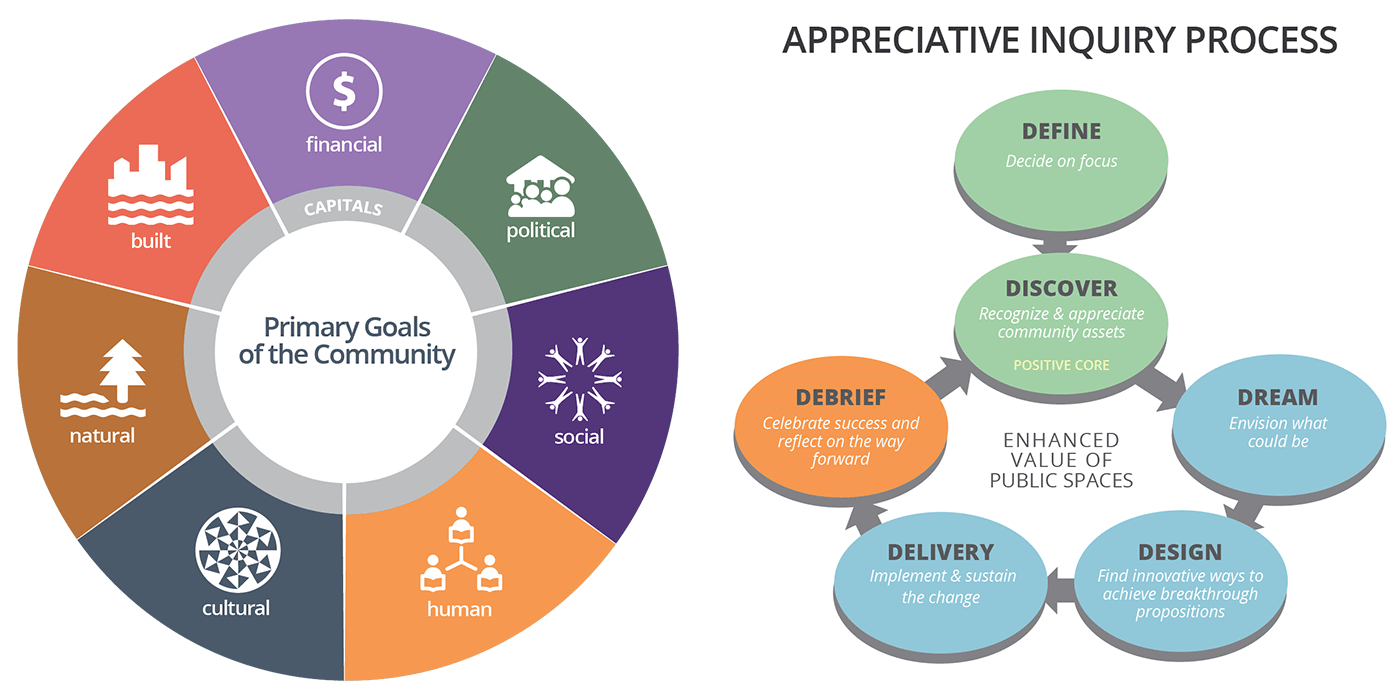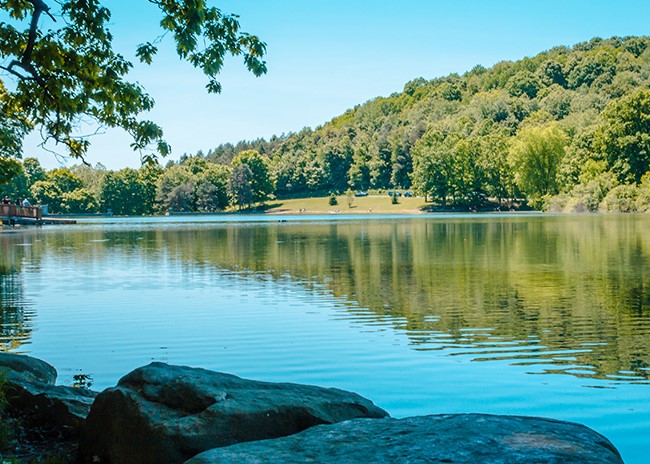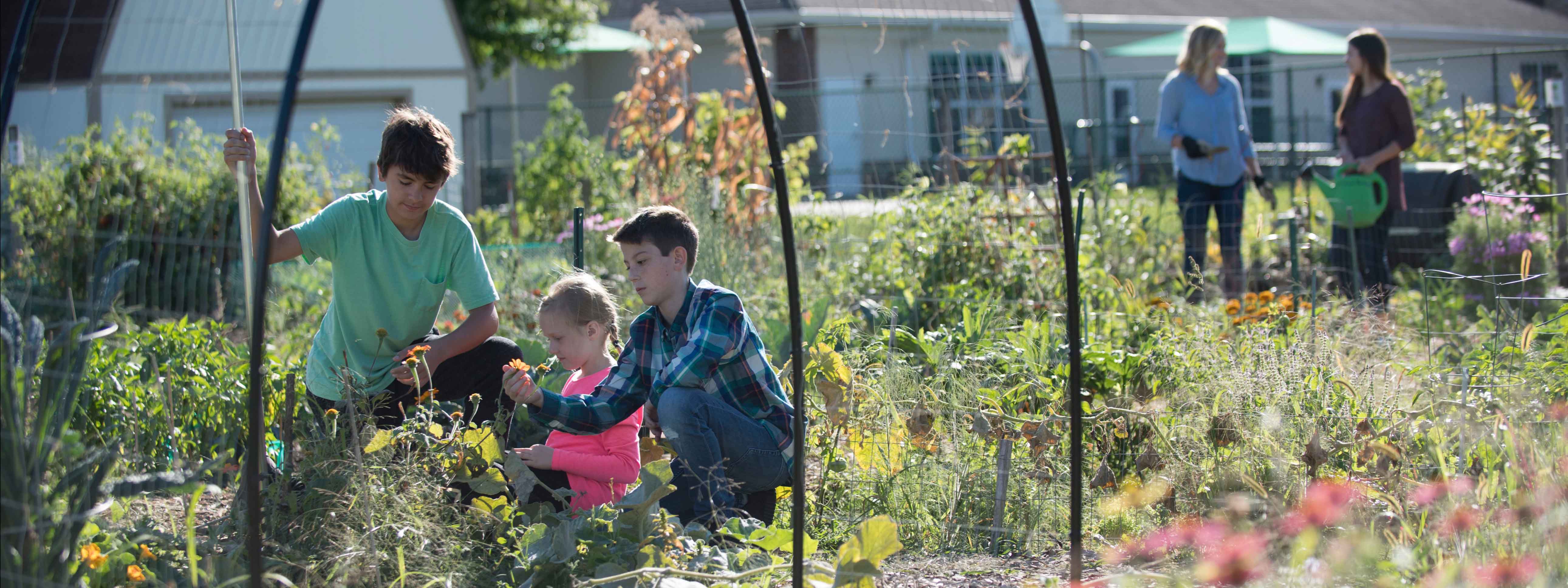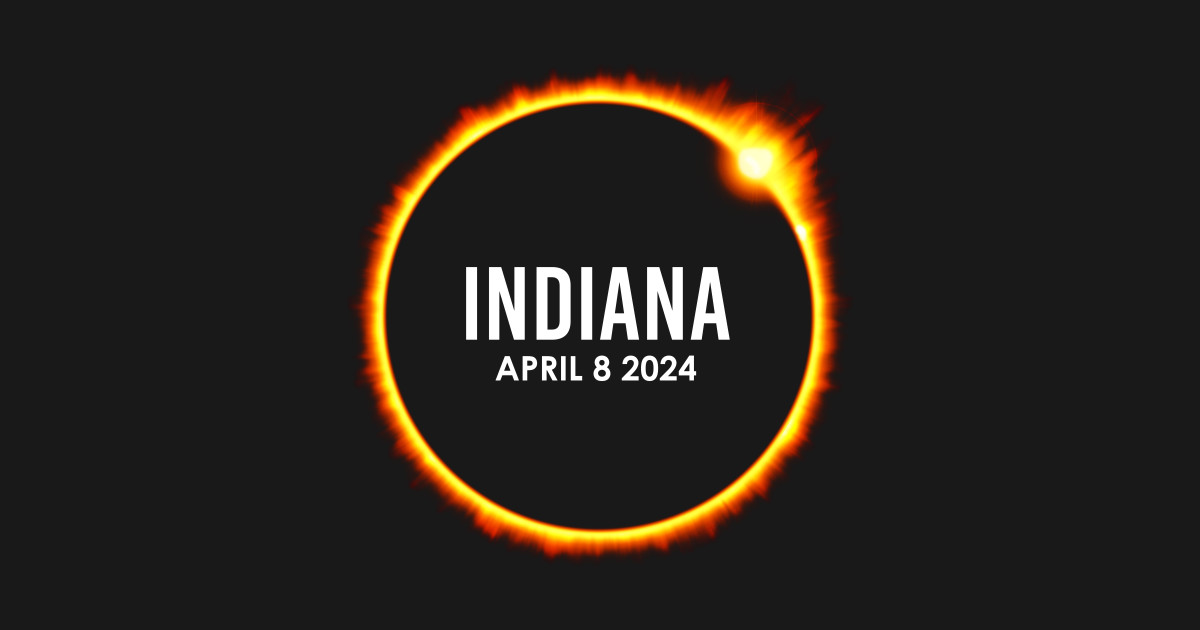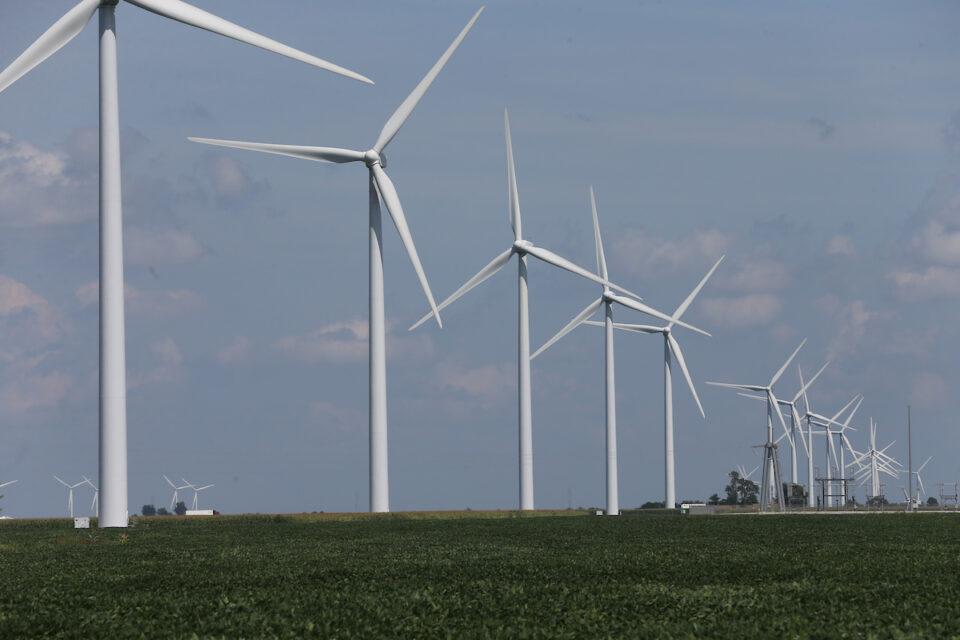Enhancing the Value of Public Spaces
Public spaces play a vital role in all our lives. They are the paths we bike on, the public parks we play in, and the town centers where we shop. Decisions about how to design and manage these spaces can have long-term impacts on our communities social, economic and environmental health. The Purdue University Extension program, Enhancing the Value of Public Spaces, addresses public spaces and their role in enhancing the quality of place by helping regions, communities, and neighborhoods plan and prepare for a sustainable future. The Indiana-based curriculum is designed for decision-makers and local leaders overseeing and managing community public spaces, such as parks boards and planning commission members, public officials and their staff, and members of organizations that provide services, programs, or management of public spaces. The program provides a framework for collecting data on community assets and using that data to design a high-quality plan to guide impactful improvements in public spaces.
Collaborative Planning for Community-Specific Public Spaces Projects
Collaborative activities are used throughout a one-day workshop to identify best practices for improving public spaces to start the Enhancing process. An emphasis is placed on forming partnerships to achieve desired community goals. Purdue Extension facilitators walk participants through the process of:
- Collecting data on community assets;
- Planning improvements to public areas; and
- Integrating those plans with larger community programs and goals.
Facilitators give participants the tools to design, implement and evaluate community-specific public spaces projects. A companion Indiana-based curriculum connects decision-makers with additional how-to resources. Follow-up working group meetings provide the resources and technical support needed to plan and implement projects tailored to individual communities.
The Enhancing facilitation process can take approximately 15-20 hours (or more) over three to six months. The program combines data collection and analysis with inclusive public deliberation to guide the design of a high-quality action plan that can result in sustainable and impactful improvements for public spaces and, ultimately, an enhanced quality of life.
program outcomes
Complete, high-quality action plans for public spaces can be used in a multitude of ways, including:
- comprehensive plan updates;
- fundraising initiatives;
- parks and recreation master plan updates; and
- other community planning efforts for parks and public spaces.
format
The program provides a framework for collecting data on community assets and using that data to design high-quality plans that guide meaningful, sustainable improvements to public spaces.
A one-day workshop starts the process, with collaborative activities to identify best practices for improving public spaces and an emphasis on forming partnerships to achieve community sustainability goals.
Follow-up working group meetings facilitated by Purdue Extension provide necessary resources and technical support to plan and implement projects tailored to individual communities.
Target Audiences
This program is designed to engage decision-makers and local leaders, including parks boards and plan commission members, public officials and their staff, and members of organizations that provide services, programs, or management of public spaces.
To learn more, contact a member of the team listed below. We will connect you with your local county Extension office to develop a program that fits your planning needs.
Kara SalazarAssistant Program Leader for Community Development
salazark@purdue.edu
Daniel Walker
Community Development Regional Educator
walke422@purdue.edu
Michael Wilcox
Community Development Program Leader
wilcox16@purdue.edu
Steve Yoder
Community Development Regional Educator
yoder46@purdue.edu
CREATING HEALTHY COMMUNITIES
In Indiana, community leaders make decisions about public spaces such as parks, trails, farmers markets, schools, and Main Streets every day that affect the health and wellness of the community. Using Purdue Extension’s Enhancing the Value of Public Spaces: Creating Healthy Communities program, facilitators coach communities through development of a high quality action plan for their public spaces. The plan can guide decisions and better position communities to take advantage of opportunities to promote healthy eating and active living.
program outcomes
The goal is to strategically guide policy, systems, and environmental changes relevant to the ways in which high-value public spaces promote healthy communities. As a result, communities that are prepared with a public spaces action plan can boost economic development, improve the quality of life, and create a healthier place for individuals and families.
The program combines data collection and analysis with inclusive public deliberation to design high-quality action plans toward meaningful, sustainable improvements for public spaces focused on community health.
Using a science-driven, participatory approach, this curriculum includes applications of community design coupled with information resources, case studies, and strategies to enhance food access and active living through community-based programs and improvements to public spaces.
format
Creating Healthy Communities was developed by a comprehensive, multidisciplinary team of Purdue Extension professionals from:
- Health and Human Sciences
- The Nutrition Education Program
- Community Development
- Agriculture and Natural Resources
- Illinois-Indiana Sea Grant
Target Audiences
Our Indiana-based curriculum is designed for use by decision-makers and local leaders who have oversight and management of community public spaces, such as:
- Parks boards and planning commission members
- Public officials and their staff
- Members of organizations whose missions relate to services, programs, or management of public spaces
To learn more, contact a member of the team listed below. We will connect you with your local county Extension office to develop a program that fits your planning needs.
Blake Connolly, MPH, Nutrition Education Program Assistant Director
baconnol@purdue.edu
Purdue Extension, Nutrition Education Program
Lisa Graves, MS, RD, Assistant Program Leader
lgraves@purdue.edu
Purdue Extension, College of Health and Human Sciences
Kara Salazar, AICP, PCED, LEED AP ND, Assistant Program Leader and Sustainable Communities Extension Specialist
salazark@purdue.edu
Purdue Extension, Department of Forestry and Natural Resources, Illinois-Indiana Sea Grant
Daniel Walker, AICP, Community Development Regional Educator
walke422@purdue.edu
Purdue Extension, Department of Forestry and Natural Resources, Illinois-Indiana Sea Grant
wilcox16@purdue.edu
Senior Associate, Purdue Center for Regional Development
Community & Regional Economics Specialist, Purdue University, Department of Agricultural Economics
Assistant Director and Program Leader for Community Development, Purdue Extension
Associate Director, North Central Regional Center for Rural Development (NCRCRD)

